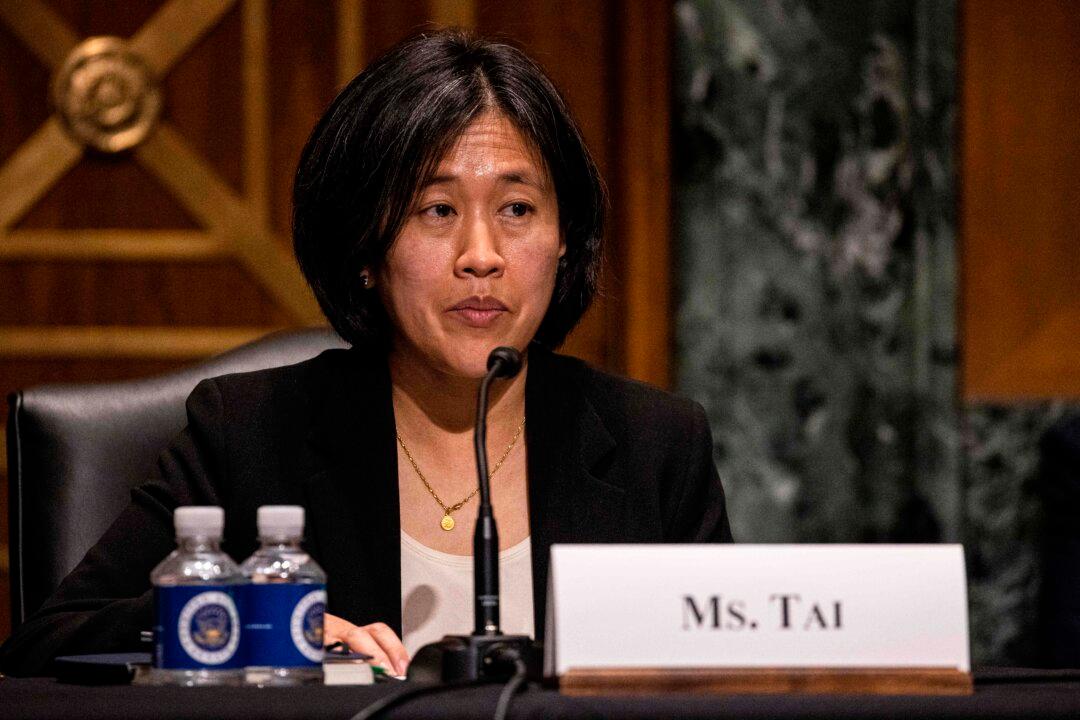President Joe Biden’s nominee for U.S. Trade Representative, Katherine Tai, on Feb. 25 pledged to work with allies to hold the Chinese regime accountable for its unfair trade practices.
In remarks at her confirmation hearing conducted by the Senate Finance Committee, Tai described the Chinese regime as “simultaneously a rival, a trade partner, and an outsized player whose cooperation we’ll also need to address certain global challenges.”





